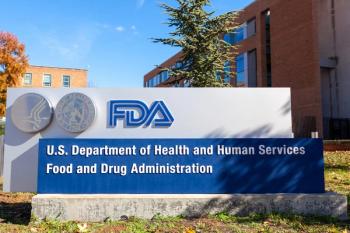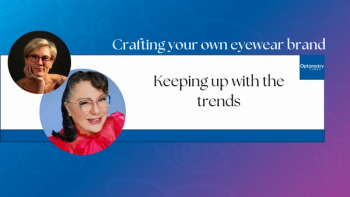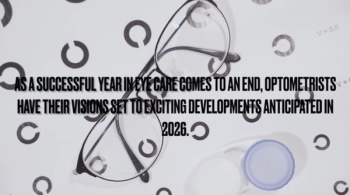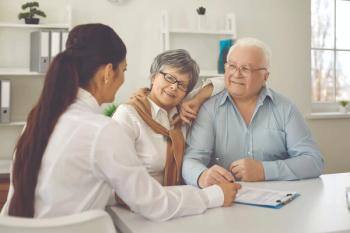
EnVision Summit 2025: Collaborative learning between optometry and ophthalmology garners better results for patients
EnVision Summit cofounder and program director Bonnie An Henderson, MD, chats about the new optometry track and what eye care providers can learn from each other.
In 2024, the EnVision Summit debuted its optometry track; in 2025, Bonnie An Henderson, MD, the cofounder and program director of EnVision Summit, has high hopes for a collaborative environment where eye care providers can come together to learn about common interests. Henderson sat down with Sheryl Stevenson of the Eye Care Network to chat about the Summit and a few of the topics they will cover. This year's Summit will take place in Puerto Rico, February 14-17, 2025.
This video is part of a series with Henderson. Watch
Video transcript
Editor's note: This transcript has been lightly edited for clarity.
Sheryl Stevenson:
Let's just shift gears a little bit and talk about the optometry track as well.
Bonnie An Henderson, MD:
Last year was our first year that we developed an optometry track, and as with any new program, it's always a little bit slow to grow because we are just building it. So we are trying to work with amazing optometrists, and especially people who are leaders in their field. I think the optometry program is really special because it really focuses on not only the topics that are important to optometrists, but also important topics that are important, that are important to ophthalmologists and optometrists.
We know that in the US, there are lots of groups that comanage with optometry. There are lots of groups that employ both optometrists and ophthalmologists, and they tend to work hand in hand, especially when they're talking about preoperative care, postoperative care for surgery. So there are a lot of issues that come up that are equally shared between both of the groups, and I think it's important to actually have a conversation between the two, and really have an open discussion of what's important to them, what's important to you, and how best to work together. And really it's really for patient care. So what can we do as professionals to advance not only in our field, but also collaborate with other groups to make sure that we're delivering the best possible care for our patients.
Stevenson:
That kind of segues into my next question, actually, are there any topics or talks that you'd like to highlight that that involve all of eye care, you know, ophthalmology and optometry?
Henderson:
So I have mentioned a little bit about the leadership, and I think leadership is an important topic that we really need to focus on [as] a part of every meeting. And the reason I think leadership is really important is it really impacts not only the day-to-day, but really more looking forward as to how best we direct our field. And I think leadership is important as we think about the bigger issues besides the details that we think about when we take care of that particular patient. So everything from advocacy to, you know, when we talk about billing and coding, that is always a changing dynamic in terms of, you know, how best are we supposed to, you know, follow the protocols to make sure we're coding properly. The rules change, the laws change, and so it's really important to follow and make sure that we're compliant on each. So I think that each of those aspects of health care delivery is something that we try to touch on, besides just the actual, the scientific portion.
Stevenson:
What do you think the eye care community gains by shared optometric and ophthalmic meetings such as EnVision Summit?
Henderson:
I think we share a lot of a lot of issues on our day-to-day when we talk about taking care of patients. So I think we share the same similar problems of diagnosing the proper diagnosis, making sure that we have the right tools to examine the patient properly. So those types of questions, you know, what is the best diagnostic tool? You know, what is this particular machine used for? What's the best screening tool? Those are the types of questions that both optometry and ophthalmology are always struggling with. I think those are very, very similar problems.
And then [there's] postoperative care. So surgical care is a big field in ophthalmology, but oftentimes our partners in optometry help us with their postoperative care, especially for cataract surgery. So when we talk about how best to address residual refractive error, for example. Or, you know, medications: How long do you prescribe something? What do you prescribe? Because that changes all the time too. So there's always a new medication that comes out every 6 months. How do you pick the right antibiotic? How do you pick the right nonsteroidal and what's your paradigm? When do you stop, and do you change it for a person who's diabetic, for example? So those are questions that I think are equally shared in both optometry and ophthalmology, and I think it's useful to be able to share space and share our different concerns.
And I know that we have different parallel tracks, so we have an ophthalmology track and optometry track. They're separate, because we have separate issues as well. But I think it's nice to make sure that, you know, we all live in one country, we all work together, and we want to make sure that we can work together well. We don't follow politics. We don't want a divisive political environment in health care. We want to make sure that we can do whatever we can to deliver the best care for the people that we serve, which is our patients.
Newsletter
Want more insights like this? Subscribe to Optometry Times and get clinical pearls and practice tips delivered straight to your inbox.













































.png)


